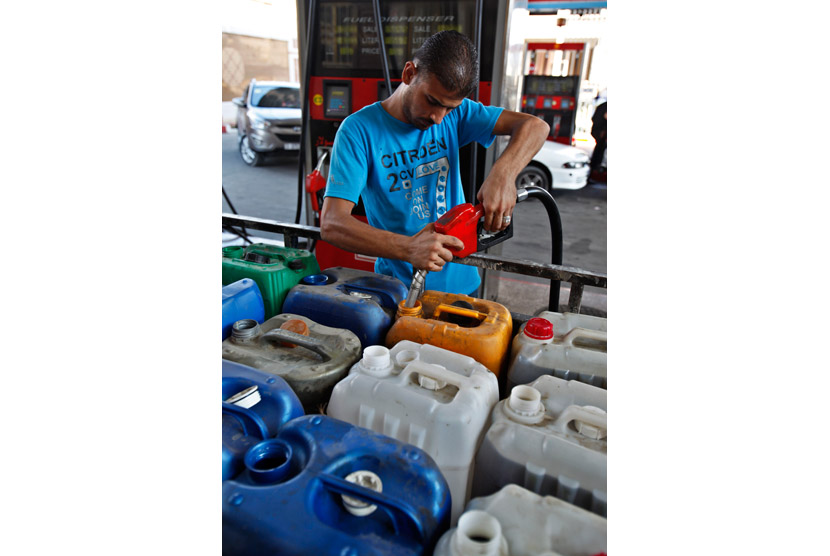REPUBLIKA.CO.ID, NEW YORK -- An independent UN human rights expert on Tuesday called for urgent action to avert a humanitarian catastrophe in the Gaza Strip, where a power shortage has disrupted health services, sent raw sewage flooding into the streets and left 1.7 million Palestinians in a dire situation.
Power supply is currently limited to six hours a day, more than three weeks after the only power plant in Gaza was shut down due to a critical fuel shortage.
"The situation in Gaza is at a point of near catastrophe," warned Richard Falk, the UN special rapporteur on the situation of human rights in the occupied Palestinian territories.
Falk made the remarks as the United Nations begins to celebrate the International Day of Solidarity with the Palestinian People, which falls on Nov. 29.
"The fuel shortage and power cuts have undermined an already precarious infrastructure, severely disrupting the provision of basic services, including health, water and sanitation," he said in a news release. "The onset of winter is certain to make things even worse."
He noted that less than half of Gaza's total power needs are being met and disruptions to specialized health services, such as kidney dialysis, operating theaters, blood banks, intensive care units and incubators are putting the lives of vulnerable patients in Gaza at risk.
Falk highlighted the plight of patients in Gaza unable to seek affordable specialized medical treatment in Egypt as a result of Egypt's closure of the Rafah crossing in recent weeks.
"The Israeli authorities have been more forthcoming in issuing permits to Gazans in need of urgent specialized treatment, but the high cost of medical treatment in Israel places it beyond the reach of most Gazans," he noted.
For the past two weeks, some 3,000 residents, including children, living in or near the Gazan neighborhood of Az Zeitoun have been wading through raw sewage on the streets after the largest sewage treatment facility in the area overflowed due to a power failure.
Falk said other sewage treatment stations may soon run out of petrol to fuel generators and result in more sewage overflowing onto the streets of Gaza. Medical experts have warned of the serious risk of disease, and even an epidemic.
"Up to 40 percent of Gaza's population receives water only once every three days," he noted. "In this situation of dire necessity those who can afford to do so, are shockingly buying unsafe water from unregulated water vendors and distributors."
"We mustn't forget that the underlying cause of a lack of adequate medical facilities and specialized care in Gaza is a consequence of Israel's illegal blockade," Falk said.
He stressed that Israel has a special responsibility under international humanitarian law to take whatever measures necessary to protect the civilian population of Gaza against this mounting threat to their well-being. "The failure to do so would be an aggravated instance of collective punishment, which is unconditionally prohibited by the Fourth Geneva Convention."
He also urged the authorities in Gaza to cooperate with the Palestinian Authority in a joint effort to ensure that desperately- needed fuel becomes available to Gazans as soon as possible.
Independent experts, or special rapporteurs, are appointed by the Geneva-based UN Human Rights Council to examine and report back on a country situation or a specific human rights theme. The positions are honorary and the experts are not UN staff, nor are they paid for their work.


